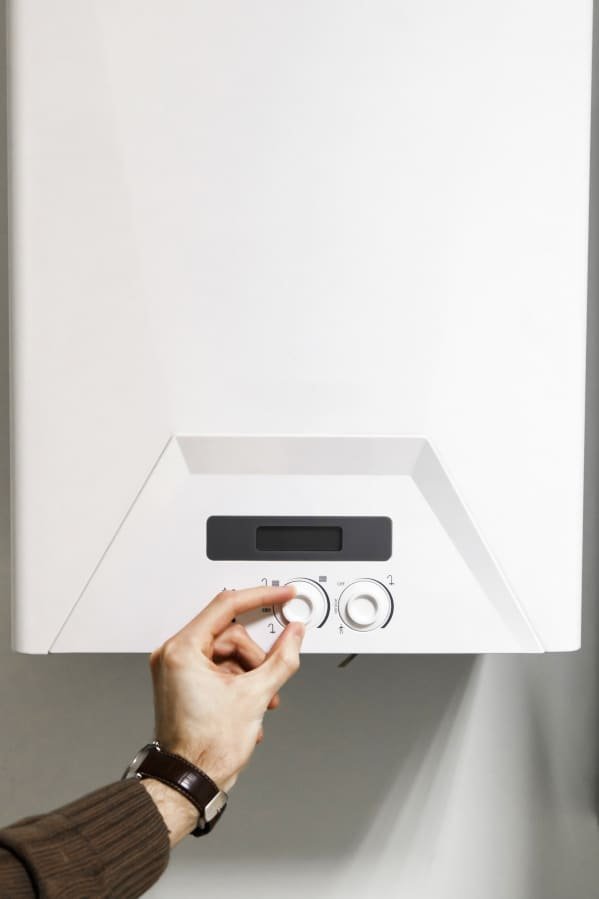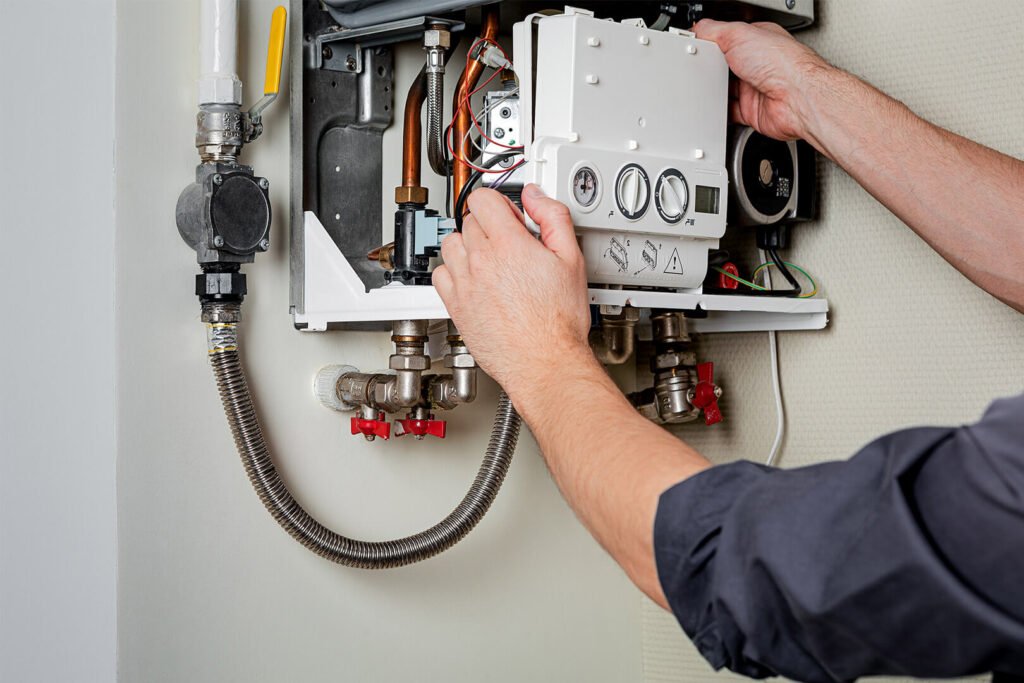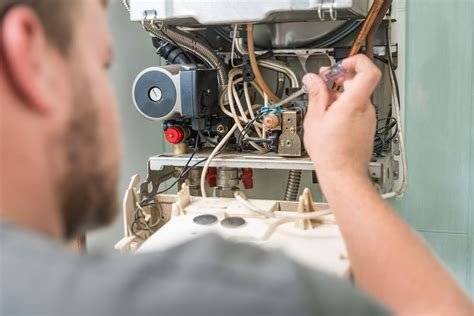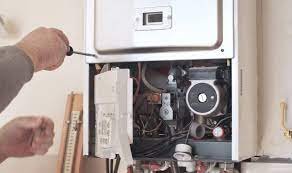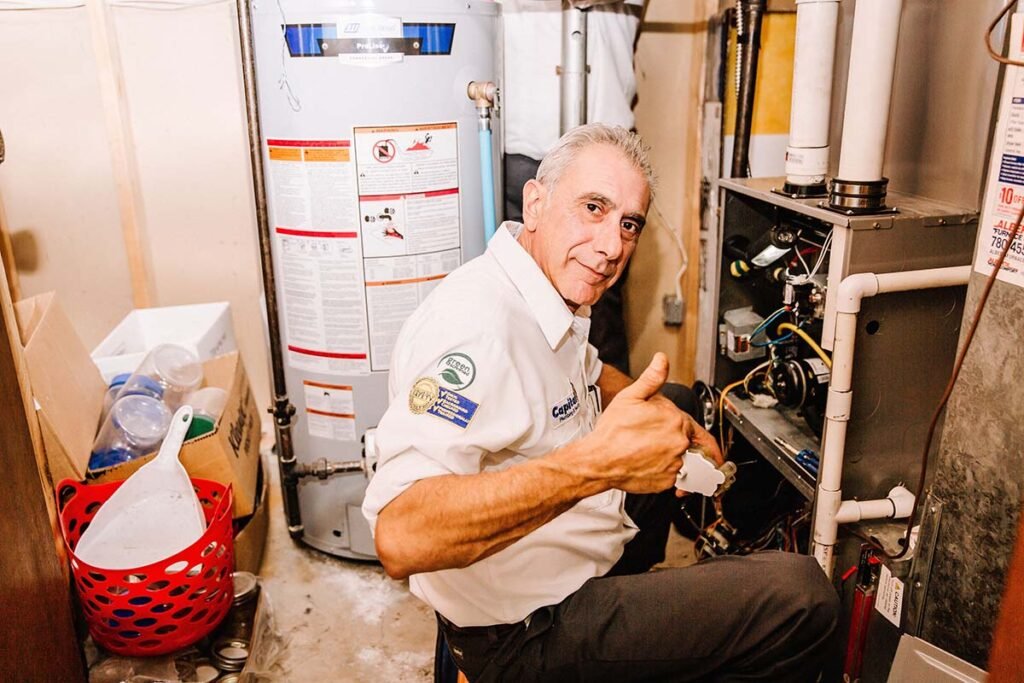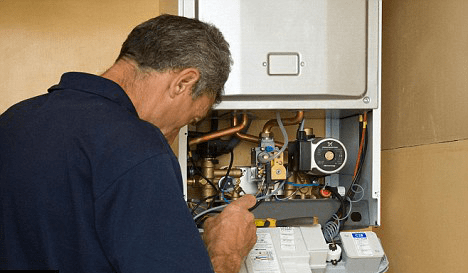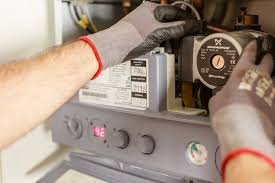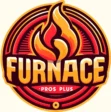Furnace Installation Lancaster Park - Your Reliable Heating Professionals
Furnace Pros Plus is your reputable partner for all your heating requires. With years of experience, we focus on delivering top-notch heating solutions to keep your home warm and comfortable. Our team of knowledgeable specialists dedicate themselves to providing expert heating system installation, maintenance, and repair work services. We comprehend the importance of a correctly functioning heating system, especially during the cooler months. We prioritize effectiveness, cost, and client fulfillment in every task (huge or small). Whether you require a brand-new heating system, a routine check-up, or emergency repairs, rely on Furnace Pros Plus for reputable and efficient heating services that ensure peace of mind and convenience.
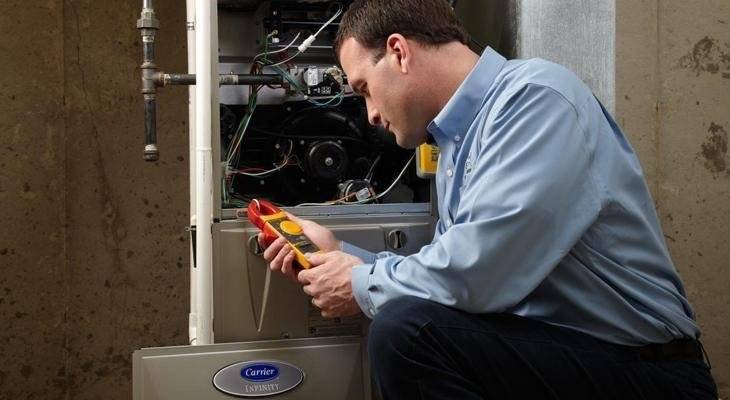
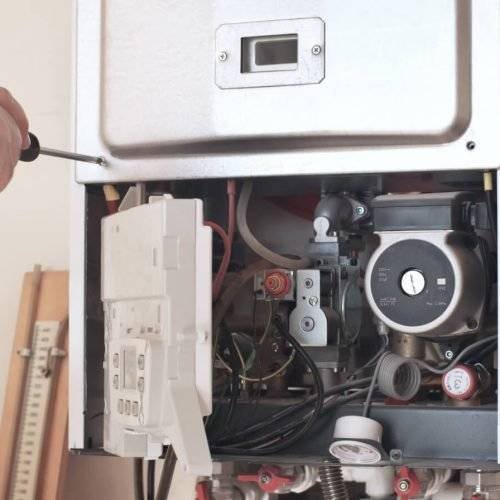
Who Are We?
Domestic Furnace Installations & Repairs
Furnace Pros Plus stands apart as the leading heating system installation and repair work business in Lancaster Park, Alberta, thanks to its unrivaled dedication to quality, customer service, and expertise. With years of experience in the heating and cooling industry, Furnace Pros Plus has developed a reputation for delivering reputable and efficient services tailored to the unique climate and requirements of Lancaster Park citizens.
The company’s dedication to excellence starts with its team of licensed specialists. Each HVAC technician is not just highly experienced and educated about the most recent heating system innovations but also committed to continuous training and development. This makes sure that every installation or repair work is carried out with the utmost precision and updated strategies, guaranteeing exceptional performance and durability of your furnace.
Furnace Pros Plus comprehends the importance of a well-functioning heating system, especially during the harsh Lancaster Park winters. That’s why they provide a quick response to ensure that any heating system emergency is handled immediately and successfully, decreasing inconvenience and prospective threats. Their 24/7 availability is a testament to their dedication to client fulfillment and security.
Furthermore, Furnace Pros Plus uses just the highest quality items and materials in all their setups and repairs. By partnering with leading manufacturers, they ensure that every part of your heating system is durable and efficient, providing optimum heating and decreasing energy costs. This dedication to quality, extends the life of the heating system, providing more worth for the investment.
In addition to their technical expertise, Furnace Pros Plus masters customer service. They prioritize clear communication, providing comprehensive consultations and transparent rates without hidden charges. Their customized method suggests that every service is tailored to the particular requirements and budget plan of their customers, guaranteeing that you feel valued and pleased with every interaction.
For these factors and more, Furnace Pros Plus is the top option for anybody requiring heating system installation and repair work services in Lancaster Park, showing an unbeatable mix of quality, expertise, and customer-focused service.
How can we help you?
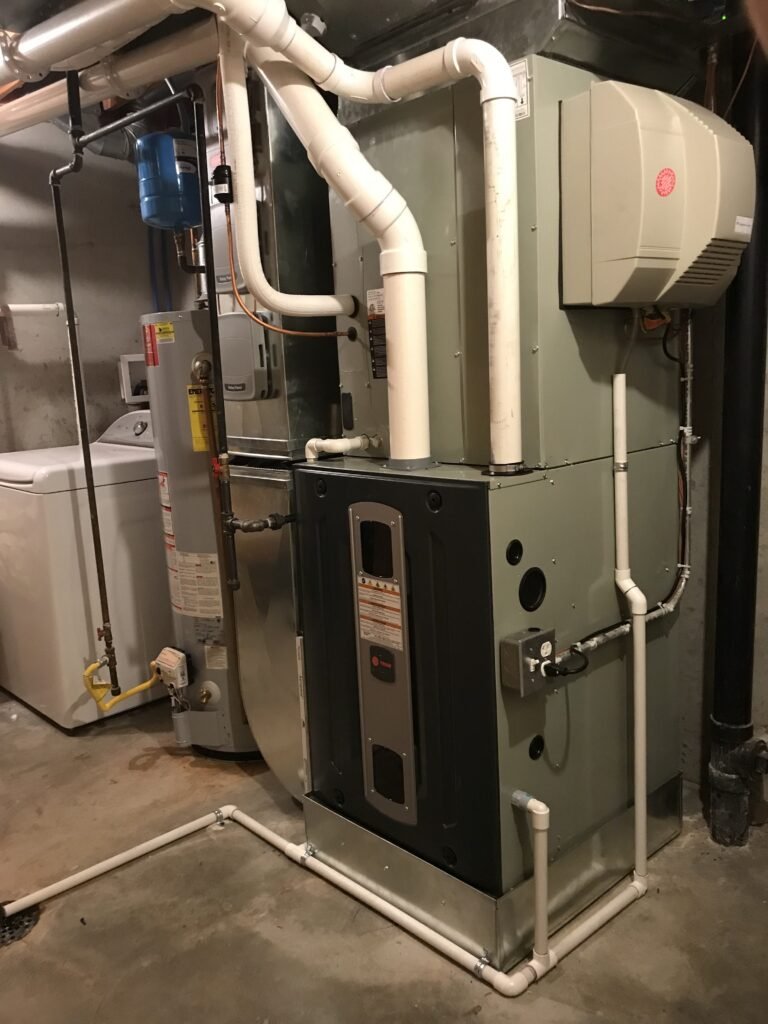
Comprehending the Cost of Installing a New Furnace
Intro
A working heating system is essential when it concerns keeping a comfortable and warm home during the cooler months. However, there comes a time when setting up a brand-new heating system is unavoidable.
Comprehending the costs involved in this procedure is essential for house owners to plan and budget plan accordingly. This extensive guide explores the different factors affecting the cost of setting up a brand-new heating system.
Aspects Affecting Furnace Setup Expenses
Type of Furnace:
- Gas Heating Systems: Popular for their effectiveness, they typically cost more upfront but provide lower operating expense.
- Electric Furnaces: They are less expensive than gas furnaces. However, electrical designs tend to have higher operational costs due to electrical energy prices.
- Oil Heating systems: These are less typical and can be more costly due to the cost of oil.
Furnace Size and Capability
- Square Footage: The size of your home directly affects the capability needed for the heating system.
- BTU Ranking: Higher BTU scores relate to more powerful furnaces, which can increase the cost.
Efficiency Scores
Annual Fuel Usage Efficiency (AFUE):
Higher AFUE scores indicate much better effectiveness but also featured a greater price.
Brand and Quality
Top-tier brands often command higher prices due to their credibility for quality and durability.
Installation Complexity
- Existing System: Updating from an old system might require extra work and cost.
- Ductwork: The condition and design of existing ductwork can impact installation complexity.
- Accessibility: Hard access to the installation site can increase labour costs.
Labour Expenses
Labour costs vary by area. In addition, the complexity of the installation can affect labour costs.
Additional Expenses to Think About
- Permits: Some localities require permits for heating system installation.
- Inspections: City laws might require post-installation examinations for security compliance.
- Thermostats: Updating to a clever thermostat can sustain extra costs.
Average Cost of Furnace Replacement
While prices can vary widely based on the factors pointed out above, here are some typical cost varieties for heating system installation:
- Gas Heating systems: $2,000 to $5,000.
- Electric Furnaces: $1,000 to $2,500.
- Oil Heating systems: $2,500 to $6,000.
These are rough estimates and can vary based on particular home requirements.
Cost-Saving Tips.
Research and Compare.
Get numerous quotes from different professionals to ensure competitive rates.
Seek Refunds and Incentives.
Search for energy effectiveness refunds used by utility companies or federal government programs.
Think About Long-Term Cost Savings.
Purchasing a more efficient heating system can reduce energy costs over time.
Conclusion
Setting up a brand-new heating system is a substantial investment, and understanding the costs involved is essential for any property owner. By considering the type of heating system, installation complexity, labour costs, and extra expenses, house owners can much better get ready for this essential upgrade. Keep in mind to seek numerous quotes, explore readily available refunds, and consider long-lasting energy cost savings when choosing.
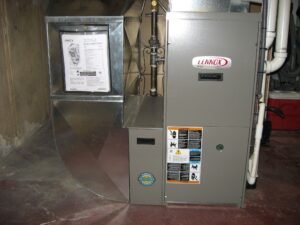
The Right Dimension Furnace for Your Home: A Comprehensive Guide
Intro
Selecting the ideal size heating system for your home is essential for guaranteeing efficient heating and convenience during the cooler months. A furnace that’s too small won’t keep your home warm, while one that’s too large can trigger unneeded energy consumption and unequal heating. This guide will help you determine the ideal heating system size for your home.
Comprehending Furnace Sizing: BTU and Efficiency
We determine the size of a heating system in British Thermal Units (BTU). One BTU is the energy needed to raise the temperature of one pound of water by one degree Fahrenheit. When selecting a heating system, 2 key factors contribute: the BTU rating, indicating the heating system’s heating capability, and its effectiveness rating, determined in Annual Fuel Usage Efficiency (AFUE).
Calculating Your Home’s Heating Requirements
You must compute your home’s heating requires to determine the appropriate heating system size. The estimation thinks about factors like square footage, climate zone, insulation quality, window type, and home design. Usually, you require roughly 30-60 BTUs per square foot. However, this varies based on your home’s particular qualities.
Climate Zone and Its Influence On Furnace Size
Your geographic area considerably influences the heating system size required. Houses in cooler areas, such as [area], require more BTUs per square foot than those in milder environments. Seek advice from a heating specialist for particular recommendations.
The Role of Home Insulation in Furnace Sizing
Excellent insulation minimizes the quantity of heat loss, suggesting you can select a smaller heating system. Evaluate your home’s insulation in the walls, attic, and windows. Updating insulation can be an affordable method to minimize heating requirements.
Factors To Consider for Various Kinds Of Heating Systems
There are different types of furnaces, like gas, electrical, and oil. Each type has unique sizing factors to consider. Gas furnaces are common and efficient, electrical furnaces are more simple and safer but often more costly to run, and professionals set up oil furnaces where gas isn’t readily available.
Value of Professional A/c Assessment
An expert a/c assessment is invaluable. Service technicians consider all variables, including ductwork and home design, to recommend the optimum heating system size. They can perform a Manual J estimation, the industry standard for determining heating and cooling loads.
Energy Efficiency and Cost-Effectiveness
Selecting a heating system with a high AFUE rating is essential for energy effectiveness and cost savings. Modern furnaces have AFUE scores between 80% and 98%, indicating the percentage of fuel converted into heating. While high-efficiency furnaces are more costly upfront, they can cause considerable cost savings in the long run.
Attending To Common Misconceptions About Furnace Sizing
A common misunderstanding is that a larger heating system is always much better. However, an oversized heating system can cause brief biking, where the heating system often turns on and off, decreasing effectiveness and life-span. Conversely, an undersized heating system has a hard time to heat your home properly.
Long-Term Benefits of the Right-Sized Furnace
Picking the right-sized heating system has long-lasting benefits, including consistent convenience, lower energy costs, lowered carbon footprint, and less maintenance problems. It’s a balance between upfront costs and long-lasting cost savings.
Summary: Making an Informed Choice
Selecting the ideal size heating system is a choice that affects your home’s convenience and energy effectiveness for many years to come. By understanding the essentials of heating system sizing and looking for professional guidance, you can make an educated decision that makes sure optimum heating for your home.
Keep in mind, the secret to an efficient and comfortable home depend on selecting the ideal heating system and regular maintenance and considering other factors like insulation and climate. With this extensive guide, you are fully equipped to choose the ideal heating system for your home, providing warmth and convenience for numerous winters.

Replace or Repair Furnace: A Encyclopedic Guide
Intro
Choosing whether to change or fix your heating system is a substantial decision for any property owner. The option affects your immediate convenience and security and has long-lasting monetary ramifications. This extensive guide will explore different elements to consider, helping you make a notified decision.
Comprehending Your Furnace
Life expectancy and Types
Heating systems typically have a lifespan of 15-20 years. The two main types are gas and electrical, each with different maintenance and operational costs.
Signs of Difficulties
Common signs that your heating system might require attention include unusual sounds, inconsistent heating, and increased energy costs.
When to Think About Repairing Your Furnace
Repair is often the very best option for small problems or furnaces that are reasonably new and still under warranty.
Cost-Effectiveness
Repairing can be more cost-efficient for small problems. However, regular repairs may suggest a deeper issue.
Environmental Effect
Repair work often have a lower environmental impact than replacing the whole system.
When Replacement is the Best Option
You must consider replacement if your heating system is near the end of its life-span, repairs are becoming progressively costly, or if it could be more energy efficient.
Long-term Cost Cost Savings
While the preliminary cost is higher, a brand-new heating system can be more energy-efficient, saving you money on energy costs.
Technological Advancements
Newer designs include advanced innovation, such as wise thermostats, which provide much better temperature control and effectiveness.
Weighing Your Choices
Cost Analysis
Compare the cost of repairs over time versus the one-time expense of a brand-new heating system.
Energy Efficiency
Evaluate how your current heating system’s effectiveness is impacting your energy costs.
Home Value
Consider how a brand-new heating system may increase the worth of your home, especially if you prepare to sell in the future.
Expert Guidance
Seeking Specialist Opinion
Talk to HVAC specialists to examine the state of your current heating system and get estimates for repair work and replacement.
Value of Routine Upkeep
Routine maintenance can extend the life of your heating system, whether you choose to fix or change it.
Summary
In conclusion, choosing to fix or change your heating system depends on different factors, including age, condition, cost, and energy effectiveness. By considering these factors and looking for professional advice, you can make a decision that makes sure convenience, security, and monetary prudence for your home.
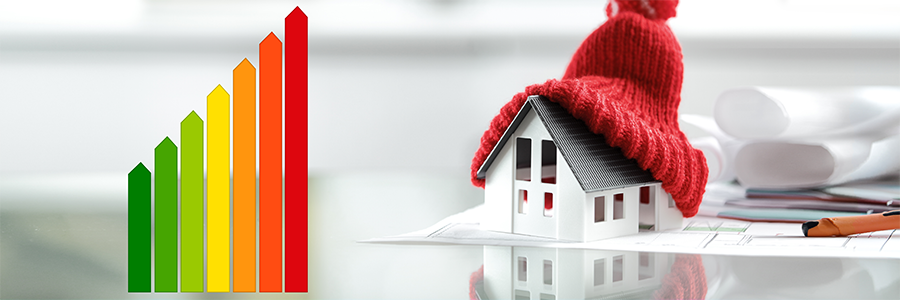
What Time of Year is the Least Expensive to Change Your Furnace?
Will a Modern Energy-Efficient Furnace Lower Your Residence Insurance?
Intro
Home maintenance can be a substantial investment, especially when it involves essential systems like heating. Among the most significant costs house owners face is replacing their heating system. However, timing this replacement can cause considerable cost savings. This short article explores the very best time of year to change your heating system, considering cost-effectiveness and practicality.
Comprehending Furnace Replacements
The Need for Replacement
Before delving into timing, it’s important to comprehend why and when you must change your heating system. Common signs include regular repairs, heating inadequacy, and the system’s age (generally beyond 15-20 years). Replacing an out-of-date or malfunctioning heating system enhances heating effectiveness and makes sure security and convenience during cooler months.
Aspects Affecting Furnace Costs
Several factors impact heating system prices, including the type of heating system, brand name, capability, and the complexity of installation. Seasonal need is another considerable element, often ignored, yet it plays a vital function in determining the cost.
Best Time for Replacement: Off-Season
Why Pick Off-Season?
The off-season, mainly spring and early fall, is normally the most inexpensive to change a heating system. The need for heater is lower during these durations than during the peak winter season. Lower need often causes more competitive rates from manufacturers and installers.
Benefits of Off-Season Replacement
- Lower Expenses: Minimized need can cause discount rates and more consumer negotiating power.
- Schedule of Technicians: a/c specialists are less hectic during these times, guaranteeing more flexible scheduling and quicker installation.
- Ample Time for Research: The off-season offers house owners adequate time to research different heating system designs and options without the pressure of immediate need.
Preparation Ahead
Using the off-season needs planning. Expect the need for replacement and schedule it when the need is low. This foresight conserves money and avoids the hassle of a heating system breaking down in the middle of winter season.
Winter: The Peak Season
Challenges of Winter Season Replacement
- Higher Costs: The need for heating system installation and repair work peaks during winter season, resulting in higher prices.
- Busy Schedules: Discovering a technician might be more difficult, and you may have to wait longer for an appointment.
- Emergency Replacements: If your heating system breaks down in winter season, you may have to select an immediate replacement, which leaves little space for cost comparison or settlement.
Other Considerations
Energy Efficiency and Rebates
Purchasing energy-efficient designs might be more costly upfront but can cause long-lasting cost savings. Likewise, look out for refunds and tax credits used for energy-efficient home enhancements.
Value of Routine Upkeep
Routine maintenance can extend the life of your heating system, delaying the need for replacement. It’s an essential aspect of home care that you must take notice of.
Summary
Timing your heating system replacement can cause considerable cost savings. The off-season, especially spring and early fall, is typically the most cost-efficient duration for this investment. Preparation, considering energy effectiveness, and keeping your current heating system can enhance expenses and ensure a warm, comfortable home.
Intro
House owners often consider whether upgrading their home appliances and systems can cause cost savings on their home insurance coverage premiums. One typical concern is whether setting up a brand-new heating system decreases home insurance coverage costs. This short article explores how a brand-new heating system installation may impact your home insurance coverage, using insights into insurance plan, threat management, and prospective cost savings.
Comprehending Residence Insurance Premiums
Before diving into the specifics of furnaces and insurance coverage, it’s essential to comprehend what factors affect home insurance coverage premiums. Insurance provider examine different factors, including:
- Home Age and Condition: Insurance Agents view more recent homes with updated systems as lower threats.
- Area: Geographic area and local climate can considerably impact insurance coverage rates.
- Safety Functions: The existence of alarms, smoke alarm, and other security devices can reduce premiums.
The Effect of a New Furnace on Residence Insurance
Setting up a brand-new heating system in your house can have a number of ramifications for your home insurance coverage:
- Minimized Risk of Fire and Gas Leakages: Modern furnaces with advanced security functions lessen threats like fire or gas leakages. This threat decrease can be beneficial in the eyes of insurance coverage providers.
- Improved Energy Efficiency: Newer furnaces are often more energy-efficient, resulting in lower utility costs and a reduced environmental footprint, indirectly affecting insurance coverage factors to consider.
- Improved Home Value: Updating to a brand-new heating system can increase your home’s market value, which may impact the protection you require.
Prospective Insurance Discount Rates
Some insurance provider provide discount rates for home enhancements that minimize threat. These may include:
- Protective Device Discounts: You may qualify for a discount rate if your new heating system includes advanced security functions.
- Green Residence Discounts: Some insurers provide special discount rates for setting up energy-efficient appliances.
Documentation and Appraisal
To utilize a brand-new heating system installation for insurance coverage benefits, consider the following:
- Expert Setup: Guarantee a licensed professional installs your heating system, which can be a requirement for insurance coverage benefits.
- Keep Records: Preserve all receipts and paperwork for the heating system purchase and installation.
- Inform Your Insurance Company: Inform your insurer about the upgrade. They might require an assessment or extra paperwork.
Considerations Before Updating
While a brand-new heating system can provide benefits, consider the following:
- Cost vs. Benefit Analysis: Evaluate if the long-lasting cost savings on insurance coverage and energy costs validate the preliminary cost of a brand-new heating system.
- Insurance Policy Review: Speak to your insurance coverage representative to comprehend how a brand-new heating system may specifically impact your policy.
Summary
Updating to a brand-new heating system can reduce your home insurance coverage premiums by decreasing threat and boosting your home’s security and effectiveness. However, the impact varies based on specific insurance plan and the particular functions of the heating system. It’s recommended to speak with your insurance coverage service provider to comprehend the complete benefits and ramifications of a brand-new heating system installation.
FAQs
Q: How much can I save money on my home insurance coverage by setting up a brand-new heating system?
A: Cost savings vary based on the insurance coverage service provider and the particular functions of the new heating system. Talk to your insurance coverage representative for comprehensive details.
Q: Exist any particular types of furnaces that are more beneficial for insurance coverage discount rates?
A: Heating systems with advanced security functions, high energy effectiveness scores, and those that meet particular environmental standards are often more beneficial.
How to Get ready for a Heater Installation
Setting up a brand-new heating system in your house is a substantial investment and an essential upgrade to your home. It enhances the convenience of your home and enhances energy effectiveness. Correct installation preparation is essential to ensure the installation procedure is smooth and hassle-free. This short article will assist you through the essential actions to get ready for a heating system installation.
Comprehending Your Heating Requirements
Evaluating Your Space: The first step is to examine the size of your area and comprehend the heating requirements. A too-large or too-small heating system for your home can cause inadequacy and higher energy costs. Consulting with a heating professional to determine the ideal heating system size is vital.
Selecting the Right Furnace: There are different furnaces, including gas, electrical, and oil. Each has pros and cons; the option depends on your area, budget plan, and individual choice. Research and speak with experts to make a notified decision.
Pre-Installation Preparation
Picking a Certified Installer: We can not overstate the importance of selecting a qualified and experienced installer. Search for specialists with great evaluations and proper accreditation. They will ensure a correct installation and guide you through the procedure.
Clearing the Location: Guarantee the area where you prepare to set up the heating system is clear of any mess. A tidy area offers simple access to the installation team and speeds up the procedure. Remove any important or fragile items from the area to prevent unexpected damage.
Preparing for Downtime: Depending upon the complexity of the installation, your heating system might be down for a couple of hours to a day. Plan accordingly, especially if the installation is during cooler months.
Throughout Setup
Access to Your Home: Guarantee the installers have simple access to your home, which includes guaranteeing that parking is readily available and a clear path to the heating system area.
Interaction: Stay readily available to answer any concerns the installers may have. Clear communication can help solve any problems rapidly and guarantee your installation goes as planned.
After Installation Checks
Inspect the Installation: Once the installation is complete, check the deal with the installer. Guarantee that the installation is complete which the area is tidy.
Comprehending the System: Have the installer explain the performance of the new heating system, including how to alter filters and the fundamental troubleshooting actions.
Service warranty and Documentation: Ensure you get all essential paperwork, including warranty details and operating manuals. Keep these files in a safe place for future referral.
Conclusion
Preparing for a heating system installation involves understanding your heating requires, selecting the ideal heating system, and selecting a qualified installer. By following these actions, you can ensure a hassle-free installation procedure and take pleasure in the convenience and effectiveness of your new heating system for many years to come. Keep in mind, a little preparation goes a long way in guaranteeing a smooth and effective heating system installation.
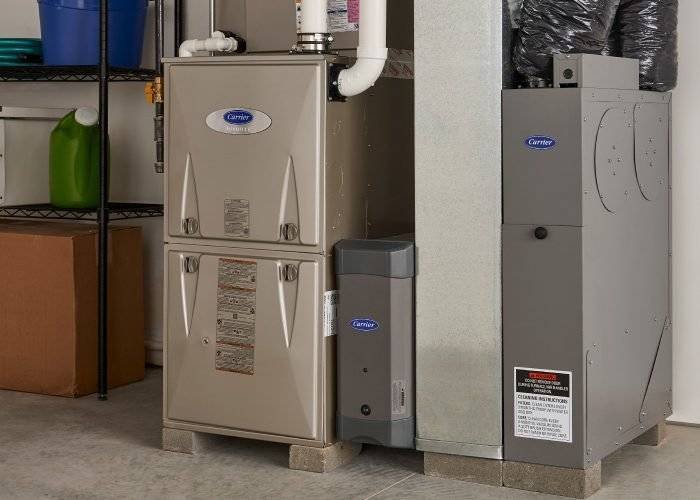
Our Work


